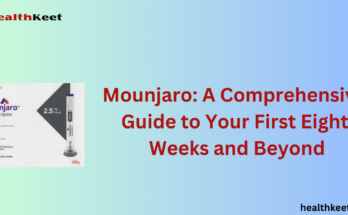Embarking on a 6-week Ozempic plan can be a transformative journey toward better health and weight management. However, as with any lifestyle change, challenges can arise. Understanding these potential hurdles and knowing how to navigate them can make your path smoother and more successful. Here’s a guide to overcoming common challenges you might face during your Ozempic plan.
1. Understanding Ozempic: The Basics
Ozempic (semaglutide) is a medication used to manage type 2 diabetes and aid in weight loss. It works by mimicking the action of a hormone called GLP-1, which helps regulate blood sugar levels and appetite. When starting an Ozempic plan, it’s essential to understand how it works and what to expect.
2. Managing Initial Side Effects
When beginning an Ozempic regimen, some people experience side effects such as nausea, vomiting, or diarrhea. These effects often subside as your body adjusts. To minimize discomfort:
- Start Slow: Gradually increase your dosage as recommended by your healthcare provider.
- Eat Small, Frequent Meals: This can help manage nausea and stabilize your blood sugar.
- Stay Hydrated: Drink plenty of fluids to prevent dehydration, especially if experiencing gastrointestinal issues.
3. Dealing with Appetite Changes
Ozempic can reduce appetite, which is beneficial for weight loss but may also lead to challenges like reduced food intake or lack of energy. Here’s how to handle it:
- Focus on Nutrient-Dense Foods: Choose foods rich in vitamins, minerals, and protein to ensure you’re getting essential nutrients despite eating less.
- Plan Balanced Meals: Ensure your meals contain a balance of protein, healthy fats, and carbohydrates to maintain energy levels.
- Consult a Dietitian: A professional can help create a meal plan that meets your nutritional needs while adhering to your reduced appetite.
4. Adjusting to Lifestyle Changes
Incorporating Ozempic into your routine may require changes to your daily habits. These adjustments can be challenging but are crucial for achieving the best results:
- Create a Routine: Set a consistent schedule for taking your medication and meal planning.
- Track Progress: Keep a journal of your diet, exercise, and any side effects to discuss with your healthcare provider.
- Stay Active: Regular exercise complements Ozempic’s effects and supports overall well-being. Aim for activities you enjoy to stay motivated.
5. Addressing Weight Plateau
It’s common to experience a weight loss plateau during the Ozempic plan. If you notice that your progress has stalled, consider the following strategies:
- Reevaluate Your Diet: Ensure you’re not consuming more calories than you realize and adjust your food intake if necessary.
- Increase Physical Activity: Adding variety to your exercise routine can boost metabolism and break through plateaus.
- Consult Your Doctor: Your healthcare provider can offer personalized advice and check if any adjustments to your medication are needed.
6. Handling Emotional and Psychological Challenges
Starting a new medication and making lifestyle changes can be emotionally taxing. To support your mental well-being:
- Set Realistic Goals: Focus on small, achievable milestones rather than overwhelming long-term targets.
- Seek Support: Connect with a support group or counselor to share experiences and gain encouragement.
- Practice Self-Care: Engage in activities that reduce stress and enhance your mood, such as meditation, hobbies, or spending time with loved ones.
7. Dealing with Financial Concerns
The cost of medication and potential diet changes can be a concern. Here’s how to manage it:
- Check for Discounts: Look for manufacturer discounts or patient assistance programs that may help with the cost of Ozempic.
- Budget Wisely: Plan and budget for your expenses related to the Ozempic plan.
- Consult Your Insurance: Review your insurance plan to understand coverage and potential out-of-pocket costs.
8. Maintaining Long-Term Success
Achieving your goals with Ozempic is just the beginning. To maintain your success:
- Follow Up Regularly: Schedule regular check-ups with your healthcare provider to monitor your progress and make any necessary adjustments.
- Adopt a Healthy Lifestyle: Continue practicing healthy eating and exercise habits beyond the 6-week plan.
- Stay Informed: Keep up with any new information or updates related to Ozempic and weight management strategies.
Conclusion
Navigating a 6-week Ozempic plan involves overcoming various challenges, from managing side effects to adjusting your lifestyle. By understanding these challenges and proactively addressing them, you can enhance your chances of success and work towards achieving your health and weight management goals. Remember to stay patient, seek support when needed, and maintain open communication with your healthcare provider throughout your journey.



















